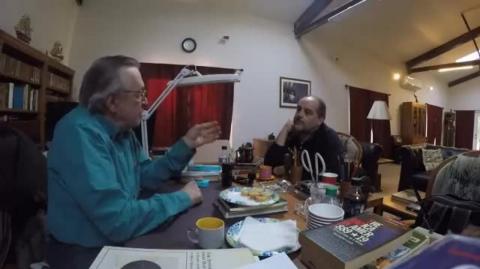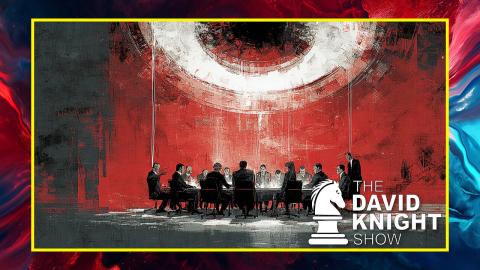Toward Socialism (Olavo de Carvalho)
Toward Socialism
If there is one institution that has never discriminated against anyone for being leftist, it is the Brazilian Institute of Military History and Geography, which operates in the former home of Marshal Deodoro, at Campo de Sant’Anna, Rio de Janeiro. The communist historian Nelson Werneck Sodré took office there in the middle of 1964, sitting next to Marshal Castelo Branco, about whom he wrote harsh criticisms in Civilização Brasileira magazine. Another institution famous for mutual tolerance among members of differing ideologies is the PEN Club, an international organization of writers that has done much for freedom of opinion worldwide.
The Institute has not changed, but the PEN is no longer the same. The Institute’s president and director of the Army Library, Colonel Luiz Paulo Macedo Carvalho, who was elected to the club last year, recently received from PEN’s president, Marcos Almir Madeira, one of the most extravagant requests: to write a letter renouncing his office, citing some imaginary pretext. Madeira explained to the colonel that a commission of leftist writers had approached him demanding that he expel the newly elected member for being a personal friend of General Augusto Pinochet.
The colonel responded that, at this stage of events, it would be an honor for him to be “barred from the ball,” but that he was not foolish enough to bar himself; thus, it was up to Marcos Almir himself, should he want to admit him, the honorable task of inventing the little lie—with or without the help of the mysterious leftist lobby whose demands he had been so accommodating to.
Colonel Macedo was merely a study colleague of Pinochet and had no involvement whatsoever in the events that would make the general the bête noire of the global leftist media. For the leftist lobby, this is irrelevant. Starting from the premise that the right contains no human beings—only vampires and werewolves—any approach to these creatures, even casual and apolitical, exposes the suspect to a risk of diabolical contamination that makes him a potential public enemy. To expel him from decent society is therefore the duty of both State and citizen. On the other hand, on the opposite end of the political spectrum, even the fact that a person was an agent of the Cuban secret service—as was the case with the PT leader José Dirceu (see Luís Mir, The Impossible Revolution)—does not disqualify him from the highest posts in the administration of the Brazilian Republic; and friendship with Fidel Castro, especially if accompanied by political complicity, counts heavily when evaluating a curriculum for the Senate, a Ministry, the Academy, or Eternal Life.
The colonel is not the first victim of the “public salvation committees” that today dominate cultural institutions, the publishing world, and the press in general. In every major publishing house, every large newspaper or magazine, internal committees already operate at full steam, destined at the right moment to expel the owners and storm the companies; but, given the supposed inevitability of the socialist revolution, they consider themselves already the legitimate leaders, provisionally curtailed in their right to rule by the scandalous interference of usurping capitalists. Curtailment, of course, is timid.
No owner of a newspaper or magazine today is crazy enough to openly oppose the power of the leftist lobby within their own company, of which most have become hostages out of laziness and cowardice.
The most disgusting thing in the entire story is the good conscience with which the future socialist Brazil’s administrators permit themselves, in advance, to command and miscommand, oppress and dismiss, censor and control. None of them have ever stopped to think that, if there may be something immoral about capitalist domination, which asserts itself by money, far more immoral is socialist expropriation, in which arrivistes and opportunists, overnight, appoint themselves masters and owners of everything without any other investment at risk than a quota of deception, violence, and arrogance.
No, these people have no conscience problems. And they will have even less in the future, when to their de facto power is added the conquest of nominal power, which sanctifies everything before the goddess History.
0



 Sant77
Sant77








 Freshfit
Freshfit


 Nomad Capitalist
Nomad Capitalist
 RT
RT

 The David Knight Show
The David Knight Show

 The Alex Jones Show
The Alex Jones Show
 TheQuartering
TheQuartering
 Timcast IRL
Timcast IRL

Log in to comment